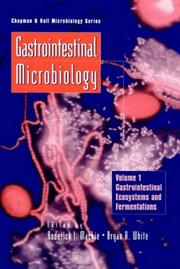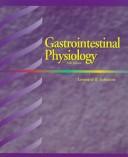| Listing 1 - 10 of 784 | << page >> |
Sort by
|
Book
Year: 1967 Publisher: London : Arnold,
Abstract | Keywords | Export | Availability | Bookmark
 Loading...
Loading...Choose an application
- Reference Manager
- EndNote
- RefWorks (Direct export to RefWorks)
Book
Abstract | Keywords | Export | Availability | Bookmark
 Loading...
Loading...Choose an application
- Reference Manager
- EndNote
- RefWorks (Direct export to RefWorks)
Book
Year: 1968 Publisher: Saint Louis (Ill.): Mosby,
Abstract | Keywords | Export | Availability | Bookmark
 Loading...
Loading...Choose an application
- Reference Manager
- EndNote
- RefWorks (Direct export to RefWorks)
Book
Year: 1964 Volume: no. 1130 Publisher: Paris : Presses universitaires de France,
Abstract | Keywords | Export | Availability | Bookmark
 Loading...
Loading...Choose an application
- Reference Manager
- EndNote
- RefWorks (Direct export to RefWorks)
Book
Year: 2022 Publisher: London : IntechOpen,
Abstract | Keywords | Export | Availability | Bookmark
 Loading...
Loading...Choose an application
- Reference Manager
- EndNote
- RefWorks (Direct export to RefWorks)
The intestine is the largest digestive organ in the human body and one of the largest organs in contact with the outside world. In addition to digesting food to facilitate the absorption of nutrients, it has a variety of other functions, including the transmission of information and regulation of the metabolism. Due to its unique structure, the intestine is constantly exposed to various antigens and microbes. To protect the body from pathogens, while also maintaining a stable environment, the human intestinal tract has evolved unique regional immune characteristics maintained by the mature intestinal mucosal immune system. This intricate system involves intestinal epithelial cells, and intestinal lymphoid tissue composed of Peyer's patches, isolated lymphoid follicles, mesenteric lymph nodes, and so on. The congenital and adaptive immune mechanisms created by the unique structure, function, and microenvironment of the intestine differ from those of the central and peripheral immune organs forming the regional immunity of the intestine. Intestinal flora also plays an important role in maintaining intestinal homeostasis, altering the structure and function of the immune system, reshaping the immune microenvironment, and promoting interference with the development of specific diseases. In fact, the immune function of the intestinal region directly affects the development of many intestine-specific diseases. However, the integrity of this function depends on the expression of congenital genes and the regulation of the neuroendocrine system. The microenvironment created by intestinal flora and its products also affects the immunity of the intestinal region. In early life, appropriate intestinal colonization by specific microflora stimulates the maturation of the intestinal mucosa-associated lymphoid tissue. If the appropriate intestinal flora fails to form during this life stage, the function of the intestinal immune system becomes impaired, leading to increased incidence and/or morbidity of certain intestinal diseases, including ulcerative colitis, Crohn's disease, and others.
Book
Year: 2018 Publisher: Leuven Leuven University Press
Abstract | Keywords | Export | Availability | Bookmark
 Loading...
Loading...Choose an application
- Reference Manager
- EndNote
- RefWorks (Direct export to RefWorks)
Book
Year: 2022 Publisher: London : IntechOpen,
Abstract | Keywords | Export | Availability | Bookmark
 Loading...
Loading...Choose an application
- Reference Manager
- EndNote
- RefWorks (Direct export to RefWorks)
The intestine is the largest digestive organ in the human body and one of the largest organs in contact with the outside world. In addition to digesting food to facilitate the absorption of nutrients, it has a variety of other functions, including the transmission of information and regulation of the metabolism. Due to its unique structure, the intestine is constantly exposed to various antigens and microbes. To protect the body from pathogens, while also maintaining a stable environment, the human intestinal tract has evolved unique regional immune characteristics maintained by the mature intestinal mucosal immune system. This intricate system involves intestinal epithelial cells, and intestinal lymphoid tissue composed of Peyer's patches, isolated lymphoid follicles, mesenteric lymph nodes, and so on. The congenital and adaptive immune mechanisms created by the unique structure, function, and microenvironment of the intestine differ from those of the central and peripheral immune organs forming the regional immunity of the intestine. Intestinal flora also plays an important role in maintaining intestinal homeostasis, altering the structure and function of the immune system, reshaping the immune microenvironment, and promoting interference with the development of specific diseases. In fact, the immune function of the intestinal region directly affects the development of many intestine-specific diseases. However, the integrity of this function depends on the expression of congenital genes and the regulation of the neuroendocrine system. The microenvironment created by intestinal flora and its products also affects the immunity of the intestinal region. In early life, appropriate intestinal colonization by specific microflora stimulates the maturation of the intestinal mucosa-associated lymphoid tissue. If the appropriate intestinal flora fails to form during this life stage, the function of the intestinal immune system becomes impaired, leading to increased incidence and/or morbidity of certain intestinal diseases, including ulcerative colitis, Crohn's disease, and others.

ISBN: 0412983710 0412983613 Year: 1997 Publisher: New York (N.Y.) : Chapman and Hall,
Abstract | Keywords | Export | Availability | Bookmark
 Loading...
Loading...Choose an application
- Reference Manager
- EndNote
- RefWorks (Direct export to RefWorks)
Gastrointestinal System --- Gastrointestinal system --- Microbiology.
Book
ISBN: 0721683975 9780721683973 Year: 1983 Publisher: Philadelphia: Saunders,
Abstract | Keywords | Export | Availability | Bookmark
 Loading...
Loading...Choose an application
- Reference Manager
- EndNote
- RefWorks (Direct export to RefWorks)
Gastroenterology --- Gastrointestinal system --- Diseases --- Gastrointestinal system - Diseases

ISBN: 0815149344 9780815149347 Year: 1997 Publisher: Saint Louis (Ill.): Mosby,
Abstract | Keywords | Export | Availability | Bookmark
 Loading...
Loading...Choose an application
- Reference Manager
- EndNote
- RefWorks (Direct export to RefWorks)
Digestion. --- Gastrointestinal System --- Gastrointestinal system --- Physiology. --- Digestion
| Listing 1 - 10 of 784 | << page >> |
Sort by
|

 Search
Search Feedback
Feedback About UniCat
About UniCat  Help
Help News
News